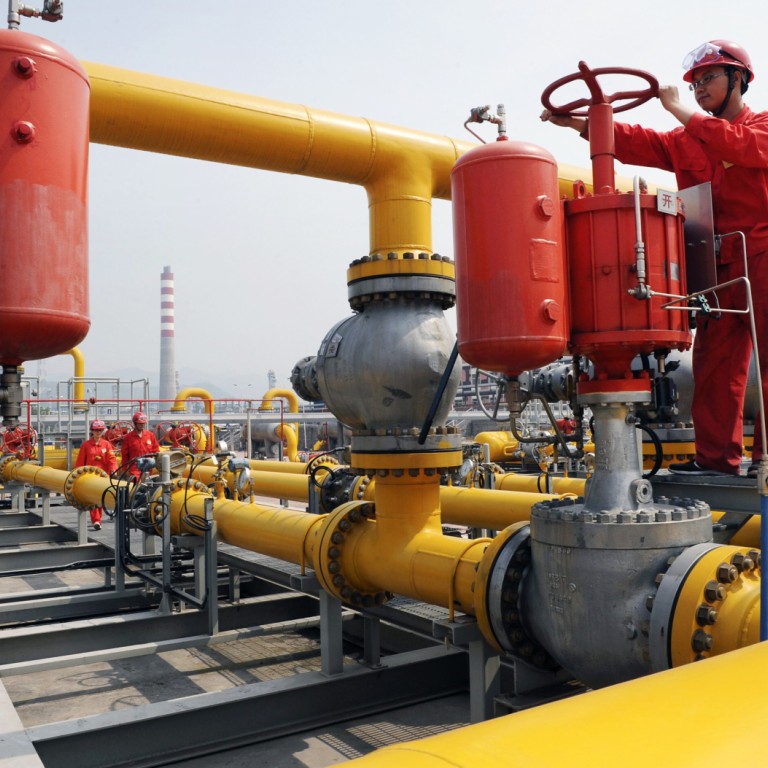
Beijing on target to solve natural gas price reform and shortages
China Gas chairman hails progress after announcing a 58.7 per cent year-on-year rise in net profit on increased distribution volumes
The central government may complete natural gas price reforms in three years and seasonal gas shortages will likely be resolved in two years, according to China Gas Holdings chairman Liu Minghui.

"Our gas distribution volume grew 25.5 per cent [in the six months to September 30]," he said. "Had it not been for gas shortage, our sales could have easily grown over 50 per cent.
"Given the gas shortage, we can't guarantee supply volume to our customers. Our priority is to meet residential demand, followed by commercial demand and industrial demand."
To combat chronic air pollution and meet emission growth ceilings, many local governments, especially in northern areas, have set targets for building owners and manufacturers to overhaul their heating systems so they burn gas instead of coal.
But given the short supply in the winter, industry regulator National Development and Reform Commission (NDRC) last month urged suppliers to ensure city residents have sufficient supply.
Consumption in the year's first nine months grew 13.5 per cent year on year, higher than the domestic production growth of 9.2 per cent, and some northern regions have witnessed unprecedented tight demand even in the non-peak season, the NDRC said in a statement.
Liu said a price rise in July dampened gas demand growth somewhat, adding that the central government is expected to keep raising gas prices in the next three years to make domestic prices largely market-oriented and closer to import prices.
China Gas' profit of HK$1.28 billion for the six months to September 30 compares to HK$872.4 million in the year-earlier period.
Chief financial officer Eric Leung Wing-cheong said after stripping out a HK$140 million one-off gain from land revaluation in the year-earlier period, profit grew 87 per cent.
Revenue grew 46.4 per cent to HK$10.5 billion as gas sales jumped 25.5 per cent to 3.5 billion cubic metres (bcm). China Gas targets selling 8.5 bcm for the 12 months to March 31 next year.
An interim dividend of 2.2 HK cents per share has been proposed, the same as the year-earlier period.
Liu said China Gas has stopped discussing with minority shareholder China Petroleum & Chemical (Sinopec) on selling new shares to Sinopec, "since China Gas' share price has changed substantially from the time when the talks first started".
Sinopec and China Gas' rival, ENN Energy, in October last year dropped a hostile takeover bid for China Gas, and Sinopec said it was in talks with China Gas on forming two joint ventures on liquefied petroleum gas distribution and the conversion of Sinopec's petrol stations into petrol/compressed natural gas stations.
Liu said a lack of an agreement on the shares' selling price meant the talks ended. Neither of the proposed joint ventures has been formed.
State-backed Beijing Enterprises subsequently bought shares in the market and became China Gas' largest shareholder. The two firms also signed a "strategic co-operation framework agreement" on possible pipeline projects, refuelling stations and gas-fired heating, cooling and power "tri-generation" projects.

